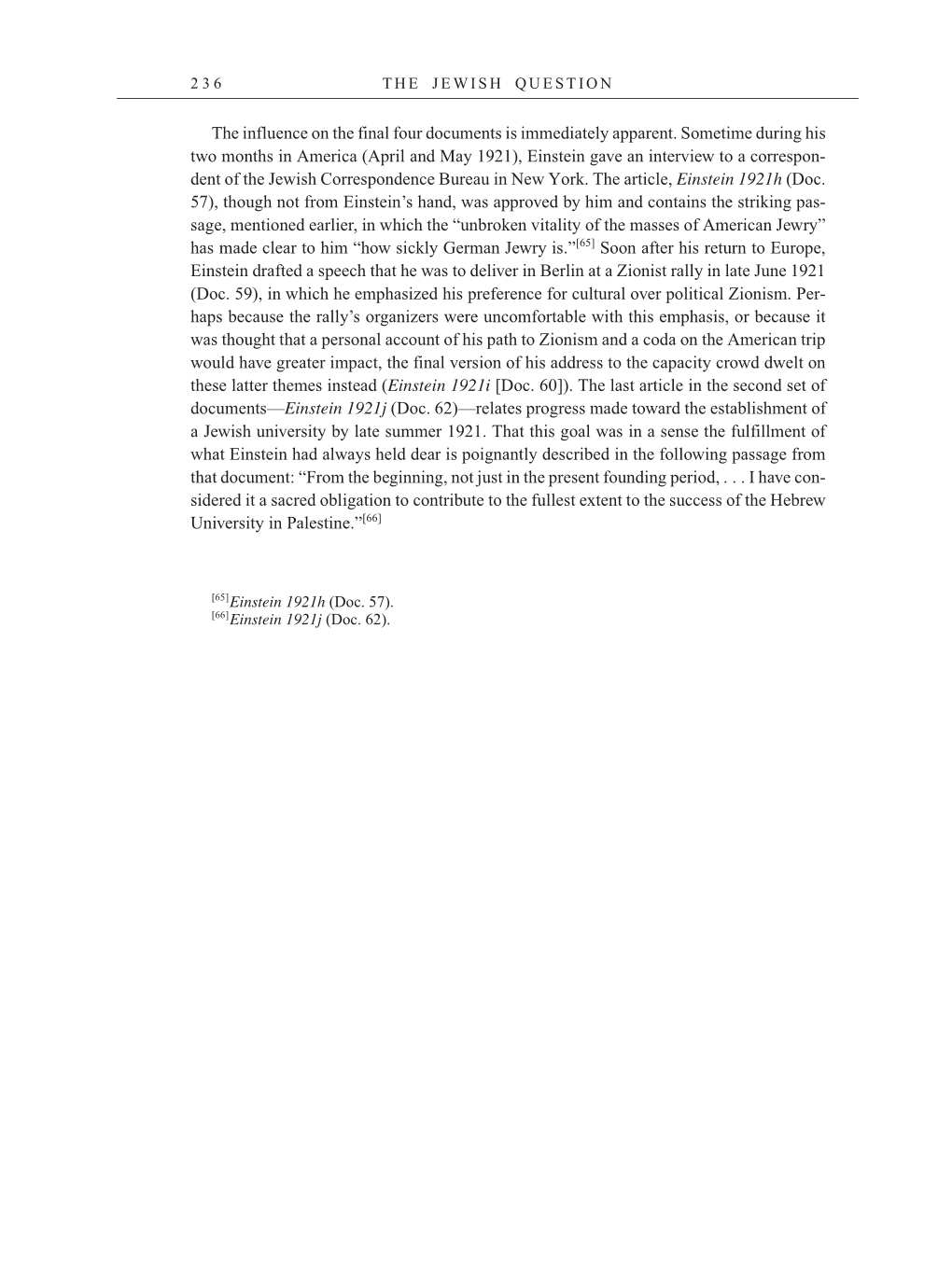2 3 6 T H E J E W I S H QU E S T IO N
The influence on the final four documents is immediately apparent. Sometime during his
two months in America (April and May 1921), Einstein gave an interview to a correspon-
dent of the Jewish Correspondence Bureau in New York. The article, Einstein 1921h (Doc.
57), though not from Einstein’s hand, was approved by him and contains the striking pas-
sage, mentioned earlier, in which the “unbroken vitality of the masses of American Jewry”
has made clear to him “how sickly German Jewry
is.”[65]
Soon after his return to Europe,
Einstein drafted a speech that he was to deliver in Berlin at a Zionist rally in late June 1921
(Doc. 59), in which he emphasized his preference for cultural over political Zionism. Per-
haps because the rally’s organizers were uncomfortable with this emphasis, or because it
was thought that a personal account of his path to Zionism and a coda on the American trip
would have greater impact, the final version of his address to the capacity crowd dwelt on
these latter themes instead (Einstein 1921i [Doc. 60]). The last article in the second set of
documents—Einstein 1921j (Doc. 62)—relates progress made toward the establishment of
a Jewish university by late summer 1921. That this goal was in a sense the fulfillment of
what Einstein had always held dear is poignantly described in the following passage from
that document: “From the beginning, not just in the present founding period, . . . I have con-
sidered it a sacred obligation to contribute to the fullest extent to the success of the Hebrew
University in
Palestine.”[66]
[65]Einstein 1921h (Doc. 57).
[66]Einstein 1921j (Doc. 62).
